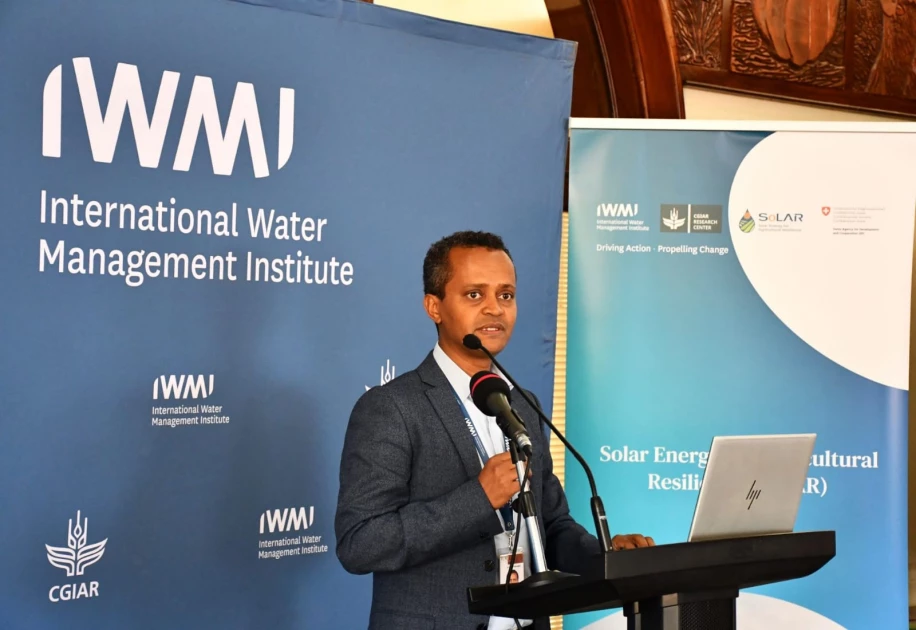Kenya, Ethiopia to benefit from Solar Energy for Agriculture Project Phase II

The International Water Management Institute Dr Muluken Adamseged.

Audio By Vocalize
Kenya and Ethiopia are set to benefit from a new regional initiative aimed at harnessing solar energy to strengthen food systems and boost climate resilience.
The International Water Management Institute (IWMI), with support from the Swiss Agency for Development and Cooperation (SDC), has launched Phase II of the Solar Energy for Agricultural Resilience (SoLAR) project, expanding into East Africa after five years of work in South Asia.
The programme
introduces a holistic approach to solar energy for sustainable agriculture,
moving beyond irrigation to promote a wider range of applications such as
solar-powered cold storage, dryers, milling and agro-processing. These
technologies are expected to help farmers cut production costs, reduce
post-harvest losses and create new income opportunities.
Kenya is
considered a strategic entry point for the project, thanks to supportive
frameworks such as Vision 2030, the Bottom-Up Economic Transformation Agenda
(BETA), renewable energy policies and the National Irrigation Sector Investment
Plan (NISIP). However, barriers remain in financing, technical skills, farmer
awareness and gender inclusion.
“Kenya’s
irrigation potential is 3.3 million acres, but only about 710,000 acres are
under irrigation. With strong political will and an active private sector, we
can reach NISIP’s target of one million acres by 2030. Coordinated action is
now needed to bridge policy gaps, expand financing options and raise awareness
among farmers,” said Eng. Vincent Kabuti, Irrigation Secretary at the Ministry
of Water, Sanitation and Irrigation.
SoLAR II will
generate evidence to guide policies and investments, develop inclusive
financing models, build capacity through training and cross-country
collaboration, and test innovations through “living labs” where farmers and
partners jointly design and adopt solar-powered solutions.
“Solar energy
has the potential to transform food systems, making them more sustainable,
inclusive and climate-resilient,” said Dr. Inga Jacobs-Mata, IWMI’s Director of
Water, Growth and Inclusion. “Through SoLAR II, we will work with governments,
the private sector and communities to create the enabling environment for these
technologies to thrive at scale.”
While solar pumping and irrigation remain the most mature and widely adopted technologies, experts say there is growing potential in broader applications.
“These
solutions can be scaled and adapted to serve both smallholder farmers and
commercial operations,” noted Walter Kiprono, GOGLA’s East Africa Regional
Representative.
The project’s
inception workshop in Nairobi brought together government officials, private
sector players, farmer representatives, financiers, researchers and development
partners to explore ways of aligning policies, expanding finance and
strengthening capacity. Participants agreed that collaboration across sectors
will be vital to accelerate adoption of solar technologies and make them
sustainable.
By embedding
solar energy solutions across farming and food systems, SoLAR II aims to
support Kenya and Ethiopia in building agriculture that is climate-smart,
socially inclusive and financially viable.


Leave a Comment